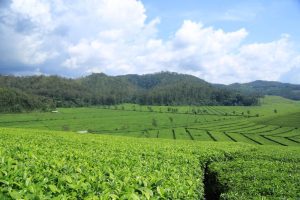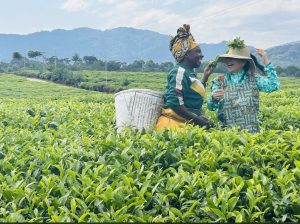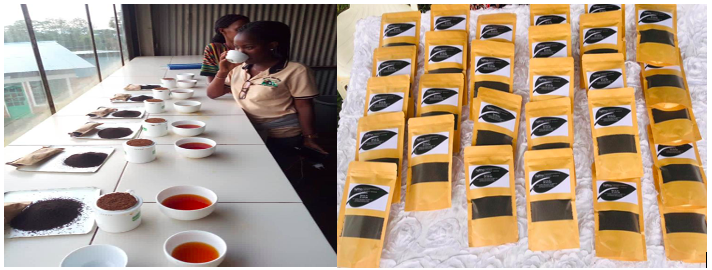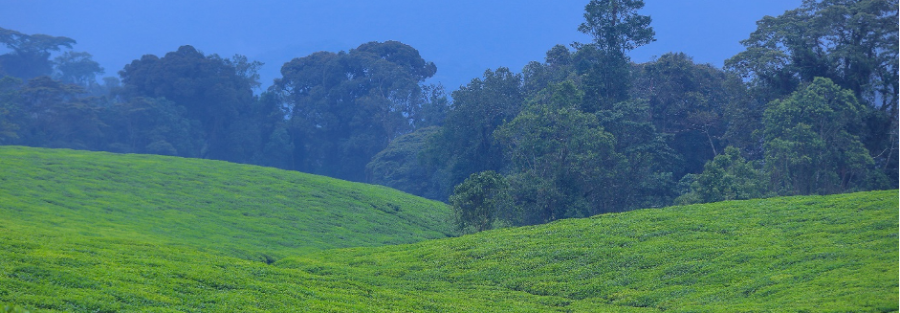Tourism is a social, cultural, and economic phenomenon which entails the movement of people to countries or places outside their usual environment for personal or business/professional purposes (UNWTO, IRTS 2008).
Tea tourism is defined as “tourism that is motivated by an interest in the history, traditions and consumption of tea” (Jolliffe 2007:9).

Gisakura Tea Factory
Visitors learn about tea history, tea varieties, life of tea, interact with farmers and tea pickers, as well as enjoying the view and fresh breeze from tea plantation and Nyungwe forest. Visitors enjoy interacting with local communities and tea pickers, while making local tea by merely picking the leaves, pounding, and drying it to make a refreshing cup of local Rwandan tea (this traditional making oftens happens at I VOMO’s office after touring the museum).
Tea tourism benefits more than 3240 workers, 2035tea local farmers, 3 ECDs with 157 kids and 26 staff as carers, cookers, and guards. Gisakura tea tourism created more than 95 jobs through tour guiding and providing tourism experience.
Tea in Nyamasheke covers 5200ha with a plan to plant more. Tea outreaches to between 45000-50,000 local communities in Nyamasheke District.
To sustainably build this growing tourism attractions, there is a need of a strong collaboration between tea farmers, cooperatives and federations, tea business operators/ factories, NEB, tour operators and tour guides, national parks, RDB, Rwanda Chamber of Tourism, RCTA, private sector involved in agriculture and tourism value-chain, local communities, and government a facilitator, promotor and provider of infrastructure, policies, laws, and regulations.


The entire world celebrates tea day on May 21 aimed at raising awareness of the long history and the deep cultural and economic significance of tea around the world. It promotes and fosters collective actions to increase production and consumption of tea. This day plays a big role in drawing global attention of governments and citizens to the impact of the global tea trade on workers and growers, and tourism players who link tea with tourism industry. It serves as a platform to highlight the significance of tea in our daily lives too.


